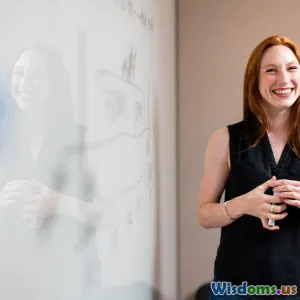
How AI Tools are Reshaping Copywriting Jobs Right Now
7 min read Discover how AI is transforming copywriting jobs with automation, new skills, and creative opportunities in content creation. (0 Reviews)
How AI Tools are Reshaping Copywriting Jobs Right Now
Introduction
In a world where technology evolves at breakneck speed, few innovations have disrupted professions as rapidly and profoundly as artificial intelligence (AI). Among the many fields being transformed, copywriting—once seen as an exclusively human craft—stands on the cusp of a revolution. AI-powered tools are reshaping the very nature of copywriting jobs, blending automation with creativity, boosting productivity, and redefining what it means to be a copywriter today.
Have you ever wondered how AI can craft compelling arguments or catchy headlines, and what that means for professional writers? The rise of AI in content creation raises powerful questions: Is AI replacing copywriters, or empowering them? What new skills are essential, and how are agencies and freelancers adapting?
This article dives deep into how AI tools are currently transforming copywriting, illustrating the shift with tangible examples, expert insights, and forward-looking perspectives.
The Rise of AI in Copywriting: Beyond Automation
AI in copywriting is far more than simple automation. Initially, AI tools were used primarily to generate formulaic content, such as product descriptions or SEO-focused snippets, automating repetitive tasks to save time. However, advancements in natural language processing (NLP), especially with models like OpenAI's GPT series, have significantly broadened AI’s capabilities.
AI-Powered Copywriting Tools: The New Workforce
Tools such as Jasper, Copy.ai, Writesonic, and Grammarly’s AI-powered suggestions are now pervasive across marketing teams and freelance copywriters alike. These platforms assist in:
- Generating ideas and headlines
- Creating blog posts and email sequences
- Crafting personalized social media content
- Enhancing tone and grammar
For example, Jasper claims it can generate a blog post draft in minutes that would traditionally take hours. This accelerates the content pipeline, allowing companies to stay competitive in a saturated online world.
Real-World Insight
According to a 2023 survey by the Content Marketing Institute, 58% of marketers reported using AI tools in writing tasks, with 75% acknowledging significant improvements in productivity. This integration shows copywriters leveraging AI as a co-pilot rather than succumbing to replacement.
How AI Reshapes the Day-to-Day Work of Copywriters
From Routine Tasks to Strategic Creativity
AI lifts cumbersome tasks off human shoulders — such as drafting boilerplate content, keyword insertion, or basic customer emails — giving copywriters more bandwidth to focus on creativity and strategic thinking.
Skill Shifts: Adaptation in a New Landscape
The evolving role demands new skill sets:
- Prompt Engineering: Knowing how to craft precise prompts to guide AI output effectively.
- AI Literacy: Understanding AI-generated content biases and accuracy.
- Creative Direction: Editing AI drafts to imbue brand voice and emotional resonance.
Freelancers who adapt are finding AI tools amplify their capacity, enabling them to take on more clients or invest time in niche expertise.
Example: The Freelance Copywriter’s Toolbelt
Take Sarah, a freelance copywriter specializing in health tech. She uses AI to generate diverse social media posts and product descriptions rapidly, then adds tailored insights and regulatory compliance notes herself. This hybrid approach has increased her project capacity by 40%, according to her recent LinkedIn post.
Challenges and Ethical Considerations
Concerns About Quality and Authenticity
Skeptics warn of a rise in generic or formulaic content that may lack originality or emotional depth. AI’s reliance on existing data can perpetuate biases and misinformation if unchecked.
Ethical Content and Transparency
The issue of disclosure—whether AI-generated content should be labeled—is gaining traction. Brands need to balance efficiency gains with maintaining trust and authenticity.
Employment Impact: Threat or Transformation?
Industry experts like Joanna Wiebe, founder of Copyhackers, highlight that AI won’t replace copywriters but will transform the profession. “The jobs that require empathy, persuasion, and cultural nuance are evolving—not disappearing.”
The Future Outlook: AI as a Creative Partner
Emerging Opportunities
AI tools are paving the way for collaborative creativity—where human intuition and AI speed intersect. Some companies are experimenting with "AI-assisted brainstorming sessions" and real-time AI feedback loops during copy development.
The Hybrid Workforce Model
The future copy desk may consist of hybrid teams where humans guide strategic direction and AI handles repetitive generation. Agencies are already upskilling their teams to thrive in this environment.
Data-Driven Personalization
AI’s ability to analyze customer data means that copywriting can become hyper-personalized at scale, optimizing conversions and customer engagement like never before.
Conclusion
The impact of AI on copywriting jobs today is a story of transformation rather than extinction. AI tools are reshaping workflows, amplifying productivity, and redefining the skills required to succeed in the evolving landscape. Far from replacing human creativity, AI is enabling copywriters to work smarter and more strategically.
As technology continues to advance, the copywriters who thrive will be those who embrace AI as a collaborative partner—leveraging its power while maintaining their unique human touch. Understanding and adapting to this AI-enhanced world is not just an option but a necessity for anyone aiming to stay relevant in the dynamic realm of content creation.
The question is no longer whether AI will change copywriting jobs, but how quickly and skillfully you can adapt to harness its potential.
References:
- Content Marketing Institute, 2023 Content Marketing Survey
- Joanna Wiebe, Copyhackers, Podcast: AI & Copywriting Transformation (2023)
- Jasper AI Use Cases and Customer Testimonials
Rate the Post
User Reviews
Popular Posts





















